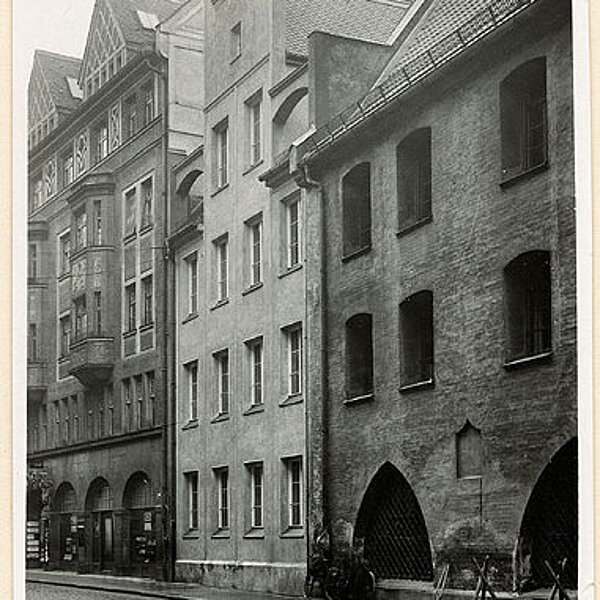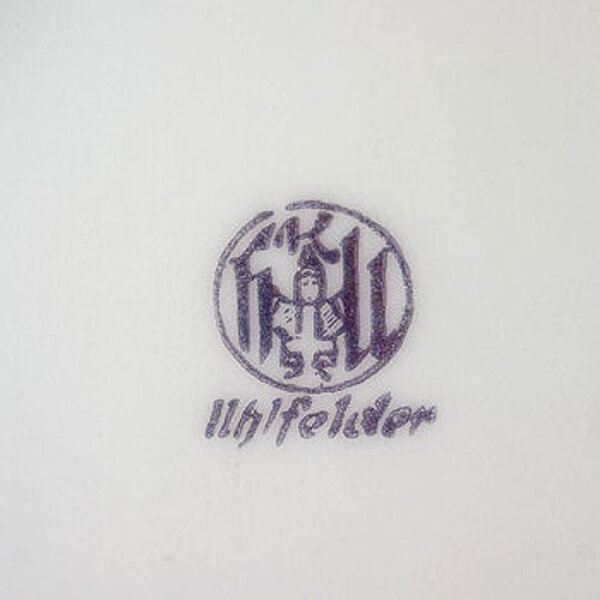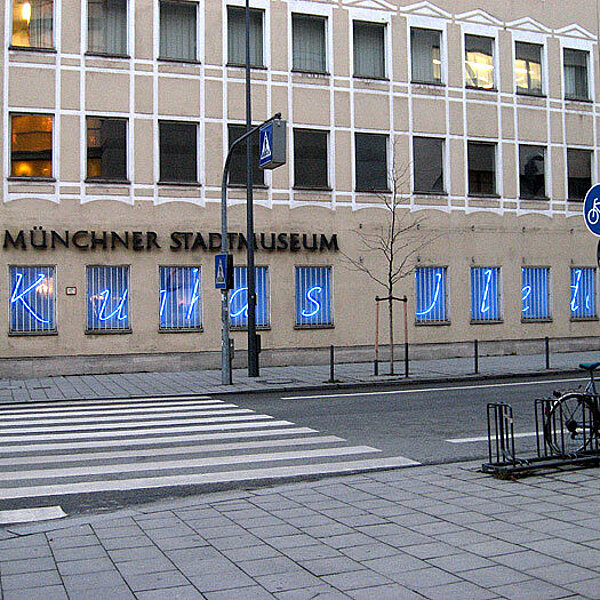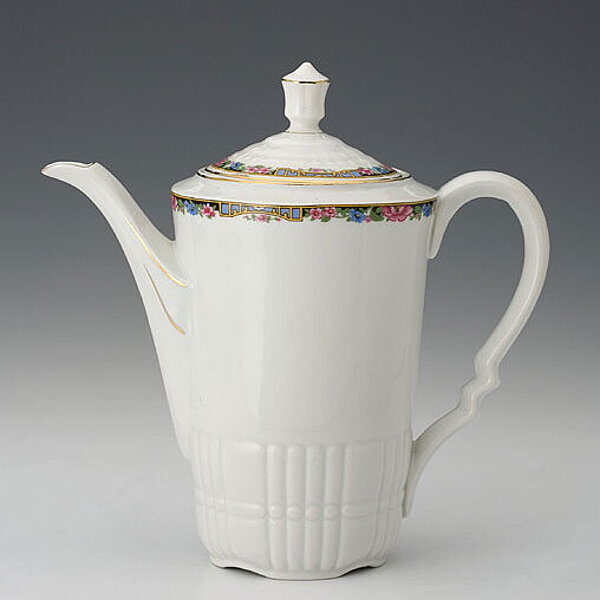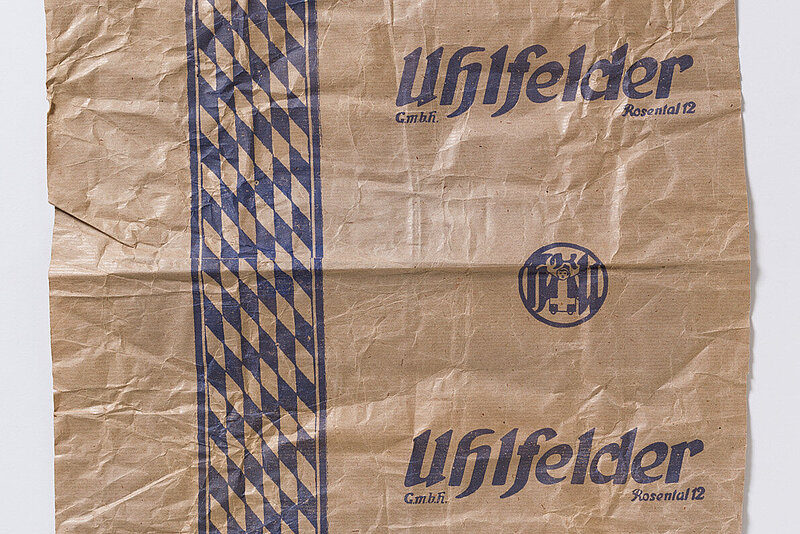The Uhlfelder Department Store
The Münchner Stadtmuseum of today is located in part on the site of the former Uhlfelder department store. A neon sign bearing its name on the museum wall commemorates this fact.
The store – which was operated by the company Kaufhaus Heinrich Uhlfelder GmbH – started out as a household goods and fashion accessory shop when it first opened its doors at Rosental 9 in 1878. By about 1930 it had been extended to include the buildings at Rosental 12, 13, 14, 16 and Nieserstrasse 1 and 2. With some 7,000 square meters of sales space and approximately 1,000 employees, it had grown into the second largest department store in Munich after Tietz/Hertie. The escalators were the special highlight of this store, which generally attracted low-income shoppers.
The store’s Jewish owner Heinrich Uhlfelder (1853-1928) had been nominated a "Privy Councillor of Commerce" in 1924 in recognition of his charity work. He ran the store together with his son Max, although his daughter Margarethe was also actively involved. The store premises adjoined the building at Jakobsplatz 3. Uhlfelder was also Chairman of the Supervisory Board at Orag AG, a company that made tailoring supplies and still operates from Oberanger 9 today.
The National Socialist movement had been targeting Jewish residents and companies since its founding in Munich in 1919/20. After the Nazi Party assumed the reins of government in 1933, the hostility and repression grew steadily worse. In March 1933, Max Uhlfelder and 280 other people of the Jewish faith were placed in so-called "protective custody." Demonstrators held protests outside the department store during the anti-Semitic boycott of April 1933.
Government action targeting the Jews began to intensify in 1935 as legislation increasingly sought to strip Jews of their rights. Munich was in the vanguard of this campaign. In the so-called "Reichskristallnacht" of November 9-10, 1938, the department store was ravaged, plundered, set ablaze, and left with its doors open for days on end. Max Uhlfelder, his son and some 1,000 other Jews were incarcerated in Dachau where many of them were severely mistreated and several died. In January 1939, the Uhlfelders were released and obtained visas for India, guaranteeing their survival. They were, however, stripped of all their assets and even had to pay for all the repairs to the store.
The National Socialist Party "liquidated" or "Arianized" property owned by Jews, i.e. they instituted compulsory purchase orders enabling non-Jews to buy the property at outrageously low prices, and confiscated the wealth of the previous owners once they had fled abroad. Many people were involved in this process: the Munich "Arianization Office" run by Nazi Gauleiter Adolf Wagner proposed the liquidation of the Uhlfelder store at the Chamber of Industry and Commerce. The request was supported by interested parties in the retail sector and Munich's Mayor Karl Fiehler, and ultimately approved by the Third Reich's Minister of Commerce Hermann Göring. The warehouse passed into the possession of retailers, with the other properties handed to the Löwenbräu brewery – as a substitute for the Bürgerbräukeller beer cellar which had also been expropriated. All of these properties were "Arianized". During the air raids of 1944, the department store was severely damaged.
Having returned to Munich in 1953, Max Uhlfelder claimed compensation in over 100 civil suits – for the most part successfully. In 1954, the City of Munich bought the land on which the department store was situated. The building at Rosental 9 alone remained in the family's possession.
Plan Your Visit
Opening hours
Although the Münchner Stadtmuseum's exhibitions closed on January 8, 2024, for a complete renovation, the cinema and the Stadtcafé will remain open to visitors until June 2027.
Information to Von Parish Costume Library in Nymphenburg
Filmmuseum München – Screenings
Tuesday / Wednesday 6.30 pm and 9 pm
Thursday 7 pm
Friday / Saturday 6 pm and 9 pm
Sunday 6 pm
Contact
St.-Jakobs-Platz 1
80331 München
Phone +49-(0)89-233-22370
Fax +49-(0)89-233-25033
E-Mail stadtmuseum(at)muenchen.de
E-Mail filmmuseum(at)muenchen.de
Ticket reservation Phone +49-(0)89-233-24150

